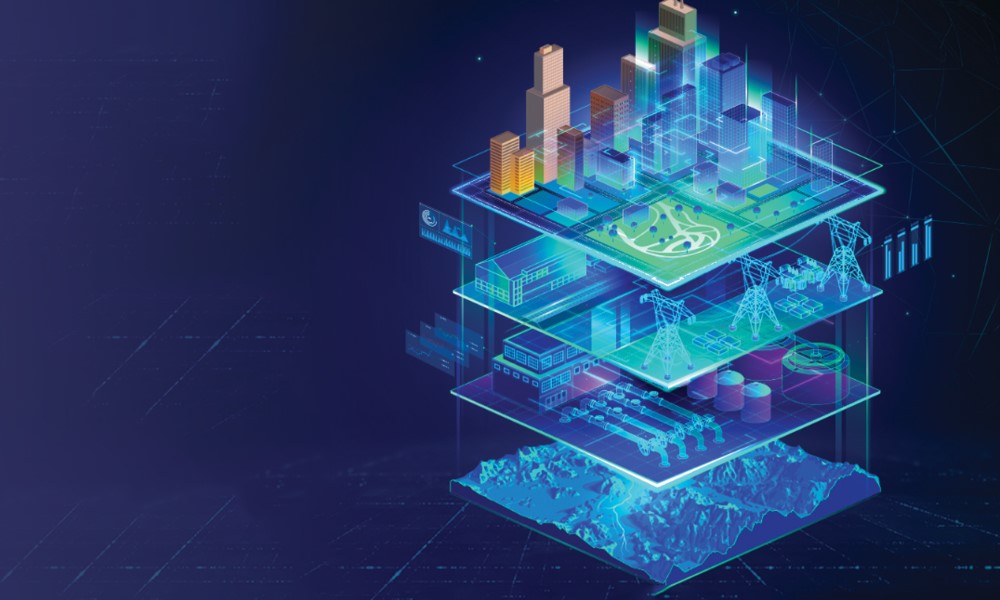Geospatial Knowledge Infrastructure Supporting National Development
Geospatial World
Aug 02, 2023

Geospatial Policy Elevating National Development
In 2022, the national geospatial policy was introduced, recognizing geospatial data and knowledge as essential national infrastructure with significant social, economic, and environmental value. This policy aims to support sustainable national development goals by establishing a citizen-centric approach and a comprehensive framework for the holistic development of the geospatial ecosystem, based on the principles of GKI (Geospatial Knowledge Infrastructure) and IGIF (Integrated Geospatial Information Framework).
The overarching goal of the policy is to propel the country towards a digital economy while enhancing services for users. By 2025, the policy envisions achieving improved availability and accessibility of high-quality location data across various organizations and sectors. This approach is intended to foster innovation, encourage enterprise, and facilitate better decision-making in the country.
Fostering Integration of Geospatial Knowledge: Empowering Decision-Makers and Driving Sectoral Growth
There exists an urgent and pressing need to shift our perspective beyond the mere provision of geospatial data. Instead, our focus must be on offering actionable geospatial knowledge that can effectively enable and enhance decision-making processes for end-users. This shift is crucial as it holds the potential to significantly improve the efficiency of various user workflows and, in turn, elevate the overall output and performance of different sectors, contributing significantly to the overall development of the nation.
To attain this transformation, it becomes imperative to integrate geospatial knowledge seamlessly into diverse user workflows. By doing so, we can empower decision-makers with valuable insights and information, enabling them to make more informed and effective choices. This integration will not only streamline workflows but also lead to optimized processes and outcomes in various sectors. By incorporating geospatial knowledge into user workflows, the potential impact on sectoral growth and development becomes evident. With enhanced decision-making capabilities, industries can identify and capitalize on opportunities, address challenges more effectively, and drive positive change. As a result, the overall contribution of different sectors towards national development will increase, fostering sustainable and holistic progress.
To successfully achieve this integration of geospatial knowledge, collaboration plays a vital role. It is necessary to bring together different stakeholders from both spatial and non-spatial domains to foster synergy and knowledge sharing. This implies the integration of spatial and non-spatial data, leveraging the best of both worlds to create a comprehensive and enriched understanding of the dynamic geospatial landscape. Moreover, embracing frontier technology in this process will further enhance the production and dissemination of geospatial knowledge. By staying at the forefront of technological advancements, we can harness their potential to unlock new possibilities in understanding, analyzing, and utilizing geospatial data.
As we navigate the evolving geospatial ecosystem, these enhanced collaborations and technological advancements will be instrumental in shaping a future where geospatial knowledge becomes an indispensable asset for decision-makers and stakeholders. It will pave the way for smarter, data-driven choices, driving us closer to a more digitally oriented economy and a society that thrives on the principles of sustainable development and innovation.
2- Day Program: National Mapping
To discuss and debate the components of strategies for enhancing the geospatial knowledge adoption across the key development priority sectors in the country, a groundbreaking two-day program, ‘Geospatial Knowledge Infrastructure Support National Development: Enabling and Augmenting Sectoral Geospatial Programs’ is being organized in GeoSmart India 2023. This event brings together stakeholders from India’s geospatial ecosystem to discuss strategies for advancing geospatial knowledge adoption in key sectors like urban development, utilities, transport infrastructure, and rural development.
With the theme, “Geospatial Infrastructure and Digital Twin: Powering National Economy”, GeoSmart India 2023 is set to assemble the geospatial community and significant stakeholders to discuss how geospatial infrastructure and digital twin is enabling the change in the national economy and creating an impact for the greater good of the society, thereby, making the national economy and society sustainable and resilient.